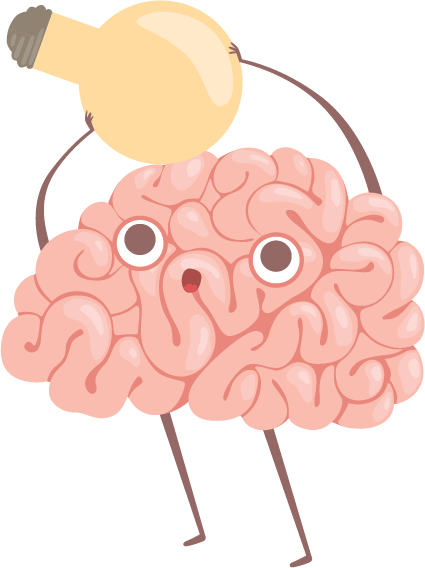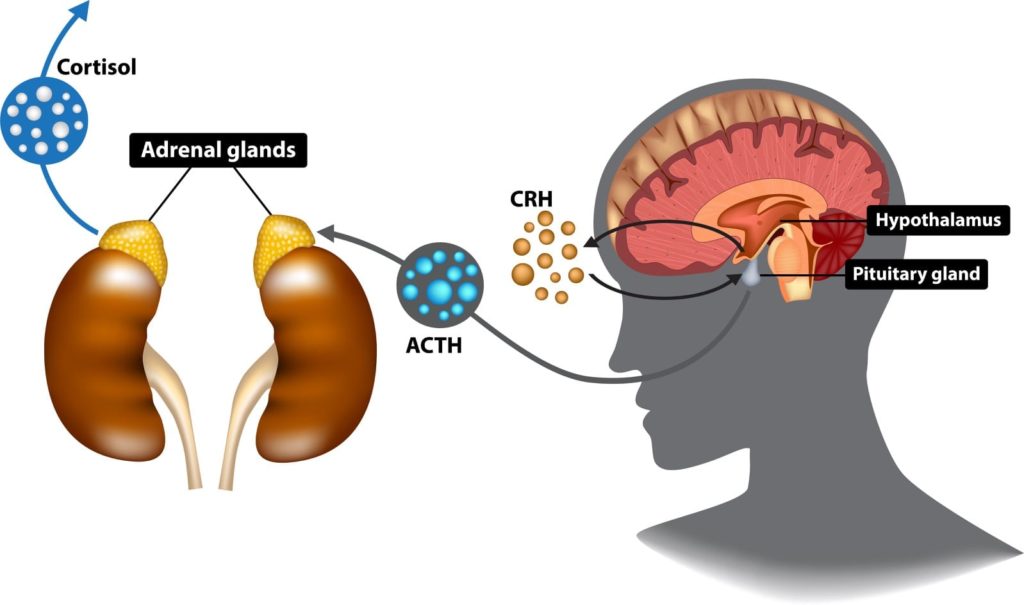There’s a good chance that there are two things that are true for you. First, that you’re suffering from some degree of mental fatigue. And second, that you just denied it in your head as you read that last sentence.
I know because I’m guilty myself.
Whether it was about leadership in the world of IT or striving to create a life in balance via our work here at The MAPS Institute, I’ve been preaching the same message for the better part of a decade: you can make your life better and richer if you’re willing to do the hard work of changing yourself.
But all that change comes at a cost — and requires energy to do it.
What if, before you can even begin to imagine how to transform yourself, you need to address something much more foundational and insidious — like the fact that you’re mentally fatigued and in denial about it?
It’s the sum of those two challenges that you’ll need to address before you can have any hope of transforming yourself and your life for the better.
As a society, however, we have created a near-moralistic view of being mentally exhausted. “Too often, our mental energy — or lack thereof — feels like a moral deficiency rather than a physical one,” writes Becky Kane in Doist’s blog.
The first step to overcoming your mental fatigue and setting yourself up for sustainable life-changing success, therefore, is to acknowledge that it’s real, that it’s not a failing, and then take specific actions to address it.
Ready?
The Real Scoop on Mental Fatigue
The first problem with mental fatigue is that most of us deny its existence. Sure, we may say that we’re exhausted, but that’s often as a badge of honor to communicate to others just how hard we’re working.
Inside our heads, however, we’re telling ourselves that if we just keep going that we’ll get through it.
But we won’t if we don’t start by recognizing that it’s not just in our heads and is, in fact, a form of physical exhaustion.
Physical and mental fatigue are two sides of the same coin and are essentially the result of the same thing: your muscles getting overtired. In the case of mental fatigue, that muscle is your brain.

This fact is what makes the societal shaming around mental fatigue so ridiculous. After all, if you were physically fatigued because you’d just run a marathon, people would be giving you high fives and offering you a place to rest and some cold water — not chiding you for not being tough enough to handle things.
However, that’s exactly what happens when someone admits to being mentally fatigued — mostly because we don’t believe that using our brain muscle is the same as physical muscle fatigue. But we could not be more wrong.
The High Mental Cost of Thought
A recent article by ESPN explored why chess grandmasters are now training like elite athletes. “Robert Sapolsky, …[a researcher] at Stanford University, says a chess player can burn up to 6,000 calories a day while playing in a tournament, three times what an average person consumes in a day,” writes Aishwarya Kumar. “Based on breathing rates (which triple during competition), blood pressure (which elevates) and muscle contractions before, during and after major tournaments, Sapolsky suggests that grandmasters’ stress responses to chess are on par with what elite athletes experience.”
The article goes on to explain how elite chess players are hiring Olympic trainers and even looking to optimize things like their posture to get a leg-up during chess tournaments.
While you’re probably not competing at the highest levels of chess, why would you think that spending hours in meetings (Zoom or otherwise) and taxing your cognitive facilities for hours on-end would not create a similar physical drain on your body?

What makes managing mental fatigue for those of us who are not chess grandmasters all the more difficult, however, is that there are a number of often disconnected factors that can cause it.
“Cognitive overload can take the form of intense focus on a single task over an extended period of time,” writes Kane. “But it can also result from spreading your attention across too many things — all of the decisions you have to make, the information you have to process, the emails you need to answer, the tasks you need to keep track of, the chores you need to take care of.”
And just having too much on your plate can cause it too. “To make matters worse, worrying about a task can be as mentally taxing as actually doing it,” she says. “That means even while you’re procrastinating, you’re taxing your brain.”
This statement uncovers what lies at the root of our mental fatigue challenges, and what we ultimately need to address if we want to overcome mental fatigue: our relationship with ourselves.
The Root Cause of Mental Fatigue and What Happens to Us When It Hits (Hint: It Ain’t Pretty)
A recent article in the Harvard Business Review examined the impact of stress on leadership from the perspective of what authors Tony Schwartz and Emily Pines call the three selves.
According to the authors, they looked to neuroscience, trauma-informed care, an attachment theory to develop this view that each of us moves unconsciously through three primary states of being — our three selves: the child self, the defender, and the adult self.
While our child self is playful and curious, and our adult self is introspective and mature, the authors suggest that we spend most of our time and energy in our defender self.
“To cope with the threats we face, we begin to form a second self: our defender,” they write. “Our defender ultimately becomes the dominant player in our lives. It doesn’t show up just when we feel threatened and we move into fight-or-flight. Rather…think of it as the persona we wear in the world. In the absence of stress, our defender can be focused and productive, even compassionate and winning. But it’s also hypervigilant and highly reactive to any perceived threat to its value.”
The problem, of course, is that when we’re constantly in “defender mode” all that stress and constant hypervigilance knocks our nervous system out of whack.
“When we’re stressed, neuroscience tells us that our amygdala — the area of the brain responsible for our evolutionary fight-or-flight response — kicks in, diverting resources from the prefrontal cortex, which is responsible for logical reasoning, problem solving, decision making, and willpower,” explains Dr. Palena Neale writing in the Harvard Business Review. “In other words, it is precisely when we’re feeling stressed and overwhelmed that we would most benefit from slowing down in order to think big, innovate, and solve the problems that are stressing us out.”

Or, put another way, “Persistent stress leads our body’s stress system (known as the hypothalamic-pituitary-adrenal axis, or HPA axis) to remain on high alert, usually for some time,” explains Margarita Tartakovsky writing for Parsley Health. “This means our bodies are constantly dealing with a cascade of stress hormones, such as cortisol. Over time, we feel both tired and wired, becoming exhausted before we even begin our days (along with experiencing other unhealthy stress-caused complications).”
So not only does mental fatigue leave us in a spent little puddle on the floor, it deprives us of our potential. It steals from us our ability to be creative, to innovate, and even to invest in the relationships and activities that mean the most to us.
All of which leaves all of us in a quandary: how can we break this cycle and reduce our mental fatigue so that we can live the life we want to live?
7 Habits to Help Overcome Mental Fatigue and Bring Your Life Back Into Balance
The good news is that overcoming mental fatigue is not as complicated as it sounds. In fact, almost all of the principles upon which we have built the MAPS philosophy will help!
Before I go any further, however, I need to address one thing. While the normal day-to-day stresses and the interplay of our three selves is what causes mental fatigue for most of us, there can also be underlying health issues at play.
Things like sleep apnea, nutritional deficiencies, and thyroid disease, among other health issues, can all lead to chronic mental fatigue. If you suspect any of these, you should consult with your healthcare provider (which is a great idea anyway if you’re feeling chronically fatigued).
Assuming that’s not the case, there are seven habits you can adopt that will help break the mental fatigue cycle and put you on the path to a more fulfilling and fruitful life:
Habit #1: Ground Yourself in Your Purpose
If you don’t know what you want and what’s important to you, you’ll lose the battle before it begins. Our free obituary test is a great way to help ground yourself in your purpose.
Habit #2: Be Active
As we’ve written about repeatedly, physical activity does wonders for your body and brain. The key when it comes to managing mental fatigue is consistency — both day-to-day and throughout the day (see Laura’s recent article on NEAT for more on this!)
Habit #3: Emotional Self-Care
Let’s face it, anything we can take off our brain’s plate makes it easier for us to manage the cognitive load. So, start by addressing any emotional baggage that is consuming energy and invest wholeheartedly in your most important relationships. Then, use tools like mindfulness, breathwork, yoga, meditation, or whatever works for you to quiet your mind and give it a chance to calm and reset.
Habit #4: Pay Attention to What You Consume
As MAPS experts such as Benji Rasky, Erica Zellner, and Rebecca Capps have written about extensively, the foods you eat play an incredibly important role in your overall state of being and, particularly, in your brain health. So, paying close attention to what you put in your mouth is an easy way to ease fatigue.
Habit #5: Prioritize Sleep
If I’m being honest, this one is the toughest for me. But the science is clear: sleep plays a massive role in our overall health and wellbeing, and specifically helps your brain cope with the stress that leads to mental fatigue. Get that shut-eye!
Habit #6: Acknowledge Your Energy Levels
I could have just as easily titled this one rest. I think that it’s so easy to just ignore the feeling of mental fatigue — but don’t do it! I know that not everyone can just rest whenever they’re feeling mentally spent, but anything you can do to acknowledge when your brain is telling you it’s tired will help. If you can take a nap, great! (Or, you can try this NSDR practice.) If not, how about a walk. Or even doing something totally different and a bit mindless? Whatever it is, acknowledging and respecting your energy levels is one of the best ways to reduce the impact of mental fatigue.
Habit #7: Choose Balance and Sit in Your Discomfort
This last one is actually the very first thing I learned from Laura when she and I started dating. She explained to me that discomfort wasn’t bad or something that I needed to fix — that I need to learn to “sit in it.” For most of us, that runs counter to everything we’ve ever learned, but accepting that somethings are just uncomfortable helps us reduce our stress levels and transforms them into opportunities for learning and growth.
– – –
I have to admit that I’m almost a little sheepish to have suggested these particular seven things to help you overcome mental fatigue. After all, you’ve probably seen versions of them listed across tens, if not hundreds, of MAPS articles.
I know. But that’s sort of the point. There are so many issues in our life that stress us out and, if we let them, can lead us to mental fatigue and any number of other issues and challenges.
And the answer is almost always the same: take a pause, focus on what’s important, and prioritize taking care of your whole self. It may sound trite, but the thing is, it’s the truth — and it works.
So, here’s to you embracing the beautiful basics and finding a fatigue-free path to the life you want to live.
Image credits: Vlad Sargu.
